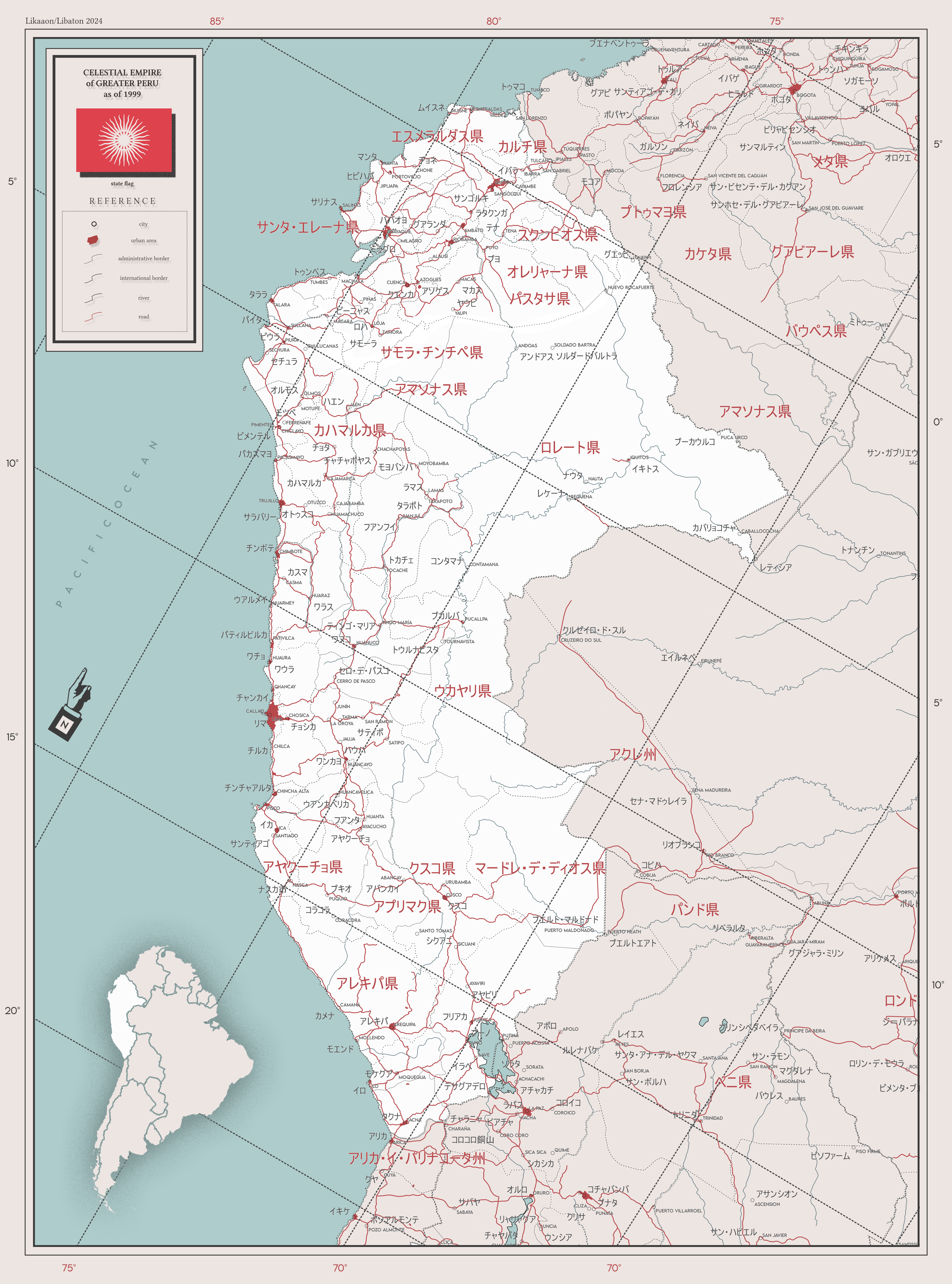Upon making stock of the Sultanate of Azawagh, a potential observer might find the legacy of Napoleon III’s independent Arab Kingdom a sort of twisted monkey’s paw.
Indeed, the true inception of the state came when Emir Abdelkader, hero of the Algerian people and noblest of Mohhamedans to the French, would die of disease only a handful of years after his return. Kabyle emirs, increasingly frustrated by measures curtailing their powers, claimed assassination, and any hopes of conciliation with the coloniser were swiftly abandoned. As a succession of revolts rocked the region, the cotton economy, a central pillar of the Algerian economy, would succumb to the boll weevil. All this would be capped off in 1880 by the declaration of martial law and direct integration into the Metropole.
With the Arab populations thus marginalised by intense famines and widespread emigration, the main levers of power would slowly shift south, with Tamenghest becoming the nation’s capital by the turn of the 20th century.
Spurred on by the gradual conquest of the Saharan emirates by French forces, this dominance would only be entrenched, especially as the Touaregs came to be seen as a ‘’model minority’’, and thus encouraged to move north. The kingdom would thus gradually shift towards a ‘’purer’’ ideal of Touareg nationhood, separate from the increasingly pan-Arabic Algerians to their north. By the 1910’s, the discovery of oil in Hassi R’mel would prove a final cleavage between the Touaregs and their northern neighbours; with the dark gold flowing only northward, was it not just to demand a cut? This call for reparations was heeded by one very special patron: the Standard Oil company of the USA.
Deftly manoeuvring around potential stops on their dominance of the oil business, the Chowder Company’s monopoly on oil sources would only spread as colonial revolt bathed former Françafrique in blood. An extraterritorial force of mercenaries, along with copious amounts of investment, would be funnelled through Libya towards the ‘’Ikazkazan revolt’’, which, thus reinforced, forced a general retreat out of the newly-declared Azawagh’s borders. Mokhtar Kodogo, leader of the revolt, would become the new Sultan of Azawagh, and Standard Oil would have a commanding share in the region’s oil drilling. The ‘’Gilded 20’’, as the period after the revolt was known, made the citizens of Azawagh some of the richest nomads in the world, but this was a fleeting glory, since the chaotic collapse of the french empire in Africa, combined with the discovery of truly gigantic amounts of oil in Arabia, would leave international investment in Azawagh a mere afterthought, and all for relatively little benefit. Into this void would, once again, step Standard Oil, who slowly created, through both coercion and almost feudal patronage, a monopoly that would be unthinkable back in the home country. The monopolar economy that had flourished during the Gilded 20 was not able to stand this crushing of any competition, and general economic collapse followed. The infamous ‘’Azawagh Auxiliary Volunteers’, better known as the Horned Vipers, were first formed in those years, sworn to defend the Sultan (second) and the Chowder Company’s interests in the region (first).
The next few decades were quiet, if depressing, with much of the population returning to traditional pastoralism. However, inspired by socialist revolution in the fractious post-colonial republic of Algeria, an audacious land-grab finally managed to rectify the ‘’injustice’’ of Hassi R’mel in 1980. Unfortunately, the entire region promptly became a gigantic army base for foreign interests, and terror attacks by Algerian patriots are an almost weekly occurrence. In spite of this, in just a few years, things would be ‘’looking up’’ again for Tamenghest.
For the uninformed stockholder, Azawagh’s oil remained but a footnote compared to the cornucopias of Venezuelan and near eastern oil, but the Crescent Crash would bring it firmly back into the spotlight. As the Army of the Upright swept into the fertile crescent and beyond, the prices of oil surged, and the mass nationalisation, meant as a deterrent by the remaining states against the dreaded socialists, would only worsen the crisis for net oil importers. It is unsurprising, then, that Azawagh quickly became a destination for oil barons the world over, consequently making Standard Oil money hand over fist. The neighbouring states, not exactly enthused by the blatantly parasitical corporation-state, were only dissuaded from outright invasion by a stars-and-stripes-backed gun show.
As Azawagh remains a pariah state, despised and coveted by all who surround it, USA infantryman and Rockefeller bully-boys reign as lords in their isolated oil rigs, all while the powerful olear lobby in Washington calls for constant vigilance against a Crash in the west.
After all, in a world full of Reds and protectionists, who better than the invisible hand of the market to let the oil flow?


